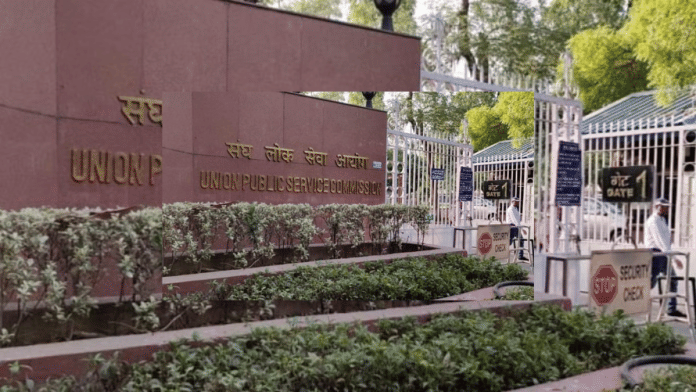New Delhi: In a significant u-turn, the Union Public Service Commission (UPSC) has now has agreed to release the provisional answer key soon after the prelims and not at the end of the entire exam cycle. Currently, the candidates have to wait for almost a year for the final answer key.
But in an affidavit filed before the Supreme Court on 20 September, the UPSC agreed to release the provisional answer key—a significant policy shift and something UPSC candidates have been demanding for long.
A group of civil services aspirants had moved the Supreme Court seeking an order that the UPSC publish its preliminary exam answer keys soon after the test, arguing that the current practice—releasing final keys only after the entire recruitment cycle—leaves candidates without a fair chance to challenge errors and can lead to wrongful exclusion from the Mains stage.
The petition was filed by advocate Rajeev Dubey. The court had appointed senior advocate Jaidee Gupta as an amicus curiae to assist it. A bench led by Justice P.S. Narasihma is likely to hear the matter on 14 October.
“Publishing the provisional answer key, after the preliminary examination is conducted…. Representations/objections will be sought from the candidates…. Each such representation/objection should be supported by three authoritative sources…. The Provisional Answer Key and objections… shall be placed before a set/team of experts,” reads the UPSC affidavit.
According to affidavit, which ThePrint has accessed, candidates can raise objections if they feel any answer is wrong. But, every objection must be backed with proof from three reliable sources (like standard textbooks or research papers). If someone cannot give this proof, their objection will not be considered.
All valid objections and the provisional key will be sent to a panel of subject experts, who will carefully study them. Based on their review, the experts will prepare the final answer key, which will then be used to decide the results of the exam.
Most UPSC candidates have welcomed the decision. “It was the most demanded reform, as maximum aspirants get eliminated at prelims stage with no clarity of where they went wrong, and the answer key was released a year later. So this reform will get lots of support from the aspirants community,” said Ketan, a teacher and former UPSC aspirant.
But some aspirants feel there are still some issues. “With a provisional key, things are more transparent. But the risk is still there—if the majority view isn’t backed by enough representation, UPSC might still get a skewed picture,” said Subodh Singh, a UPSC aspirant.
In its previous affidavit, in May, the UPSC had a different stance. The commission argued that there was no lack of transparency or violation of natural justice in the prelims evaluation process. It had also said that the criteria for shortlisting—admitting 12–13 times the number of vacancies to the Mains—was clearly laid out in the official notification, along with the marking scheme for objective questions.
“It is more than apparent that there is neither any violation of principles of natural justice nor any opaqueness in the process adopted in preparation and declaration of the result following the methodology indicated,” read the previous affidavit.
The commission also pointed out that the prelims was only a screening exam, and the marks obtained at that stage are not counted towards the final selection. Citing the Supreme Court’s earlier judgment in Ashok Kumar Yadav v State of Haryana (1985), UPSC maintained that candidates were already aware of the evaluation methodology and that the process was sufficiently transparent.
The new affidavit, in contrast, marks a shift: The UPSC has now agreed to publish a provisional answer key soon after the prelims, allowing candidates to submit objections supported by authoritative sources, which will be reviewed by subject experts before finalisation.
(Edited by Viny Mishra)
Also read: After 37 yrs in IAS, I can say UPSC exam isn’t the villain. Postings & incentives are






